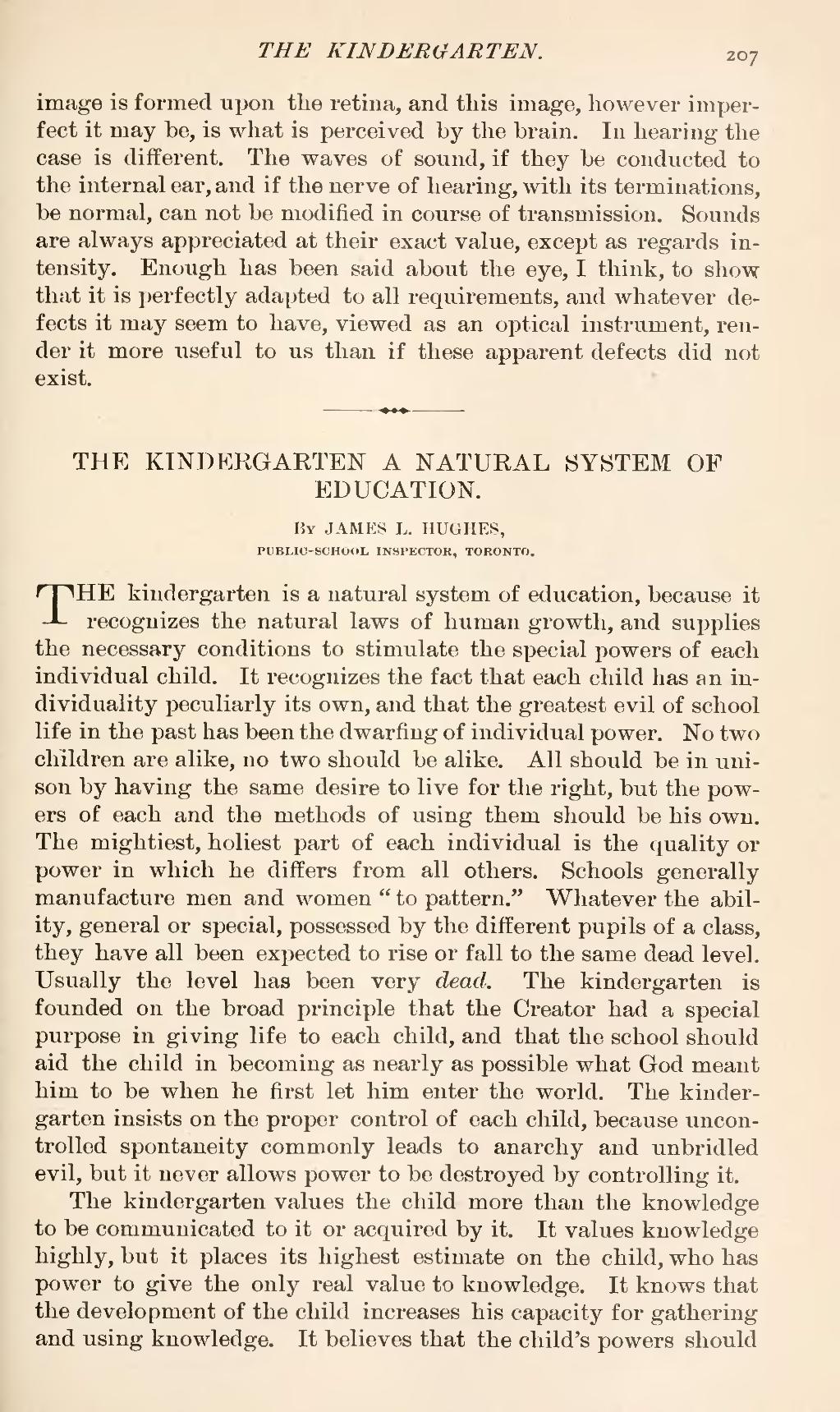image is formed upon the retina, and this image, however imperfect it may be, is what is perceived by the brain. In hearing the case is different. The waves of sound, if they be conducted to the internal ear, and if the nerve of hearing, with its terminations, be normal, can not be modified in course of transmission. Sounds are always appreciated at their exact value, except as regards intensity. Enough has been said about the eye, I think, to show that it is perfectly adapted to all requirements, and whatever defects it may seem to have, viewed as an optical instrument, render it more useful to us than if these apparent defects did not exist.
| THE KINDERGARTEN A NATURAL SYSTEM OF EDUCATION. |
By JAMES L. HUGHES,
PUBLIC-SCHOOL INSPECTOR, TORONTO.
THE kindergarten is a natural system of education, because it recognizes the natural laws of human growth, and supplies the necessary conditions to stimulate the special powers of each individual child. It recognizes the fact that each child has an individuality peculiarly its own, and that the greatest evil of school life in the past has been the dwarfing of individual power. No two children are alike, no two should be alike. All should be in unison by having the same desire to live for the right, but the powers of each and the methods of using them should be his own. The mightiest, holiest part of each individual is the quality or power in which he differs from all others. Schools generally manufacture men and women "to pattern." Whatever the ability, general or special, possessed by the different pupils of a class, they have all been expected to rise or fall to the same dead level. Usually the level has been very dead. The kindergarten is founded on the broad principle that the Creator had a special purpose in giving life to each child, and that the school should aid the child in becoming as nearly as possible what God meant him to be when he first let him enter the world. The kindergarten insists on the proper control of each child, because uncontrolled spontaneity commonly leads to anarchy and unbridled evil, but it never allows power to be destroyed by controlling it.
The kindergarten values the child more than the knowledge to be communicated to it or acquired by it. It values knowledge highly, but it places its highest estimate on the child, who has power to give the only real value to knowledge. It knows that the development of the child increases his capacity for gathering and using knowledge. It believes that the child's powers should

